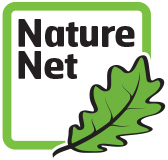
Many biologists believe we are in the midst of a sixth mass extinction on our planet. Pretty scary to think about – but it’s not all bad news for the future. Many organizations and individuals are working hard in conservation efforts to support biodiversity and the diverse ecosystems of this planet, and there have been successes! One of the first major biodiversity conservation successes in the United States was the recovery of bald eagle populations after being decimated by DDT. The seminal work “Silent Spring” by Rachel Carson in 1962 first brought the issue to public attention and led to several recovery plans for bald eagles and other species affected by pesticides. The California Condor had gone extinct in the wild in 1987, but continued efforts through to the present have led to its reintroduction into the wild in the southwestern United States. Today many people and organizations are continuing to make a difference locally and globally, and that’s worth celebrating.
Wisconsin-based organization Community Conservation is involved in conservation projects in over 14 countries, and often offers ideas and inspiration on how you can make a local difference in your community.
The UW Arboretum’s citizen science program Journey North has joined the SAFE (Save Animals From Extinction) Monarch Network to use local volunteer monitoring to help save the butterfly species!
The Henry Vilas Zoo has many conservation partners working in all different corners of biodiversity conservation, and you can learn more about them here!
In addition to these groups and more, it’s worth noting the increasing role women are playing in biodiversity science!
- As mentioned earlier, Rachel Carson made a profound impact on conservation with her writing, causing a major shift in attitudes that continues to this day.
- Dr. Sylvia Earle and Dr. Ayana Elizabeth Johnson advocate for the oceans, all the life contained within them, and continue to educate about the essential nature of conserving these spaces.
- Greta Thunberg, in advocating for the climate, is also advocating to save fragile ecosystems at risk of disruption.
- The late Wangari Maathai dedicated her life to combating deforestation by engaging her local communities in tree planting initiatives and empowering Kenyan women.
- Dr. Dorceta Taylor‘s work in environmental justice has been groundbreaking in highlighting the issues we face in environmental science and how much we still need to improve in order to truly work together to solve conservation issues.
And these are just a few of the amazing women making a difference in the world! Despite the overwhelming concerns that are facing us today, these women and many others continue to work to better our future. In the darkest days of a year that has often felt quite dark, it is uplifting to know that there is still hope and hard work that can be done.
In Case You Missed It…
- The Welty Environmental Center has a free virtual parent support group to help parents keep their kids engaged and connected with nature all winter long! Sign up on their website for access to the meetings for discussion and support in keeping it wild this winter.
- The Madison Metropolitan School District Planetarium has created virtual programming for students and the community, adapting to computer screens and making the programming more accessible not just for kids but the whole community. Read more about it here.
- The International Crane Foundation has been hosting their free From the Field Series webinars weekly on Thursdays – register for the next one or watch previous ones here.
 |
 |


